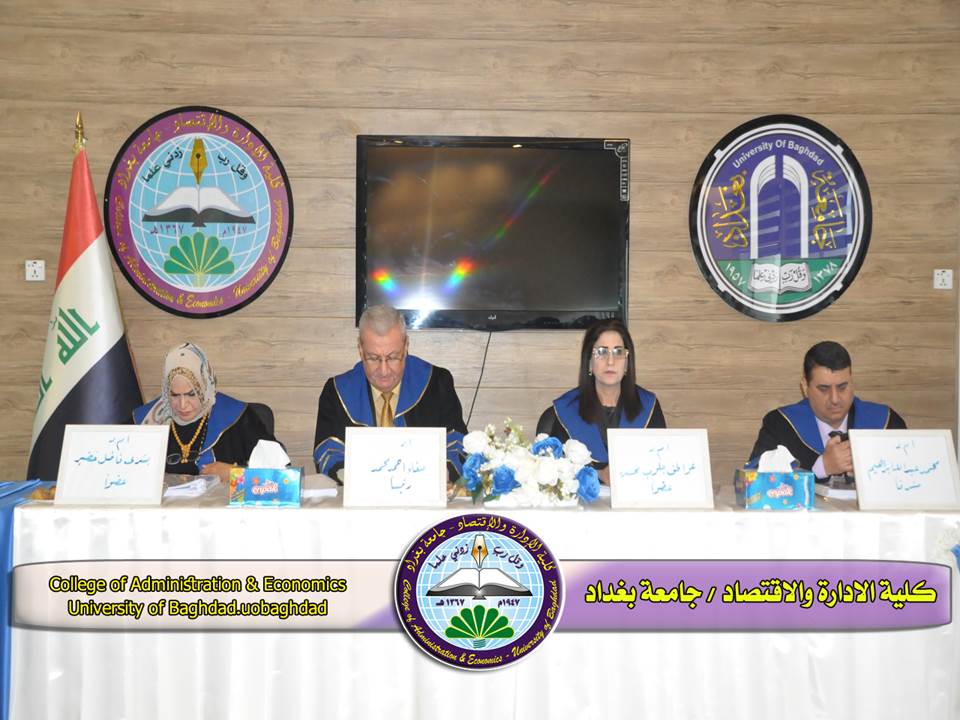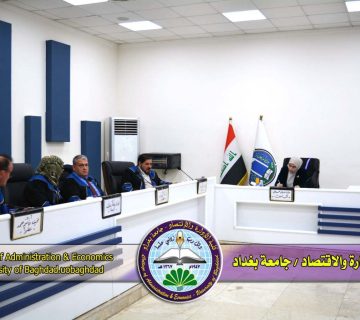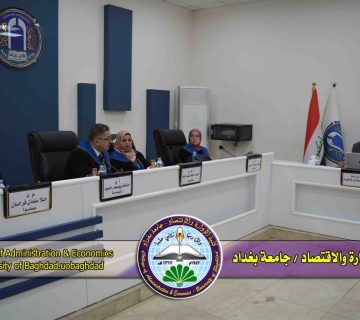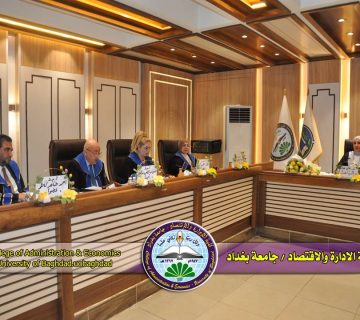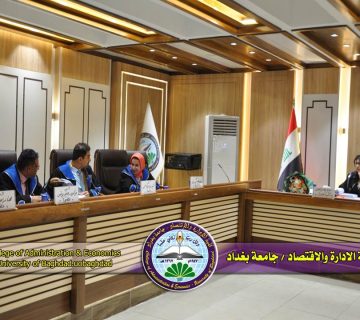The College of Administration and Economics at the University of Baghdad discussed , a master’s thesis in field of accounting by the student (Zahraa Talib Abdullah ) and tagged with ( The effect of adopting international financial reporting standards on the accounting in formation asymmetry and its reflection on the quality of financial reports ) , Under supervision of ( Asst. Prof.Dr.Mohammed Abdullah Ibrahim )
The research aims to measure the effect of adopting international financial reporting standards (IFRs) on the Accounting in information asymmetry and its reflection on the quality of financial reports. For the purpose of achieving the research goal, commercial banks listed on the Iraqi Stock Exchange were chosen as a research community. With (12) commercial banks selected as a sample for the research, the actual financial statements were relied upon for a period of (6) years divided into (3) years before adopting (IFRs) and three years after adopting (IFRs).A measure of the dispersion of financial analysts’ forecasts was used to measure the effect of adopting international financial reporting standards (IFRs) on the asymmetry of accounting information, in addition to using the total accruals model (Jones 1991) modified by (Dechow et al 1995) to measure the effect of adopting IFRs. (IFRs) on the quality of earnings, the researcher conducted an applied study and tested the hypotheses to determine their acceptability, and the researcher reached a set of conclusions and recommendations. The developments in by the financial markets at took place in The past two decades, as the economic units that searched for financing sources turned to the capital markets located outside the borders of their countries in search of better investment opportunities as a result of the intensity of savings and investments in the global markets. In addition, the results of the practical application of a group of banks, the research sample, showed that there is a discrepancy and lack of full and effective application of the International Financial Reporting Standards (IFRs) for many reasons, which may be due to a lack of full understanding of these standards or because of the difference in legislation, instructions, accounting and control systems, and other reasons related to the environment. Cultural in general. One of the most important recommendations that the research reached is the need to oblige banks to implement the correct and effective application of international financial reporting standards (IFRS) in order to achieve harmonization of accounting practices at the international level (globalization of financial reports) and to strengthen the feature of comparability between different economic units at the local and international levels in light of The intertwining of local economies with the international economy (globalization of the economy) through global markets.
